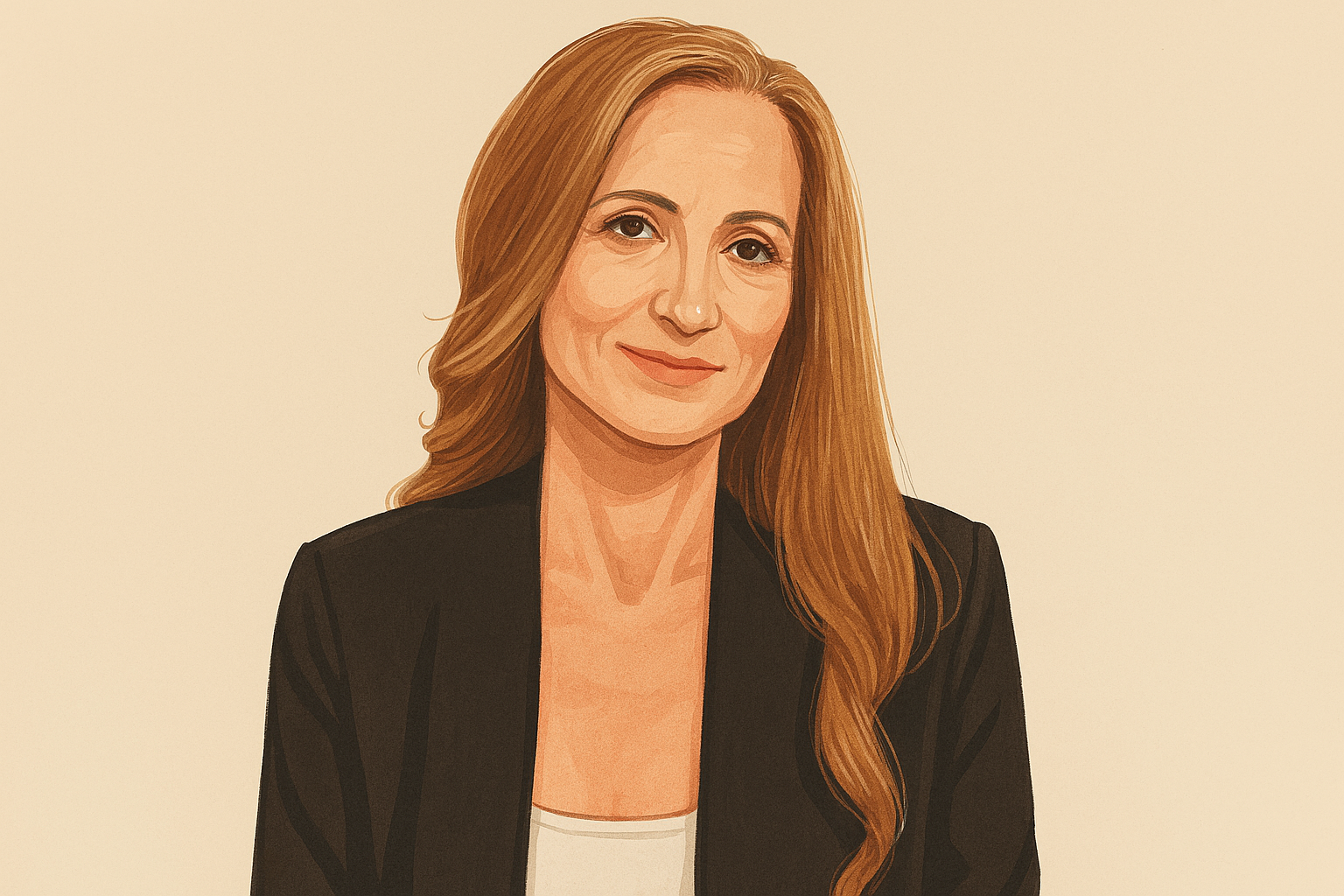
Nine months on one investigation. Albanian outlets were scared to publish it. So Lindita Çela started her own.
The lights used to go out in the newsroom. Often. Hours would pass before they flickered back on, but Lindita Çela never left her desk. There were stories to write—murders that didn’t add up, government officials whose connections stretched too far into the underworld, and a country trying to forget what it had never fully confronted. It was the early 2000s, and in Albania, investigative journalism was still a foreign concept. What Çela was doing didn’t even have a name.
She began as a culture reporter, reviewing exhibitions and performances. Her editors quickly noticed a different kind of curiosity in her. They started assigning her stories about crime and corruption, asking her to dig deeper, to follow the trail when others stopped at the press release. “At the time,” she says, “we didn’t call it investigative journalism. It was just journalism.”
Today, Lindita Çela is one of the region’s most tenacious investigative reporters. She is known for her work with BIRN, OCCRP and now for founding Shteg Investigativ, a media platform that she created not out of ambition, but necessity. The stories were still there. The space to tell them was not.
Her breakthrough came not with a headline, but with a photograph. It showed a known drug trafficker alongside a high-ranking Albanian minister. The image, combined with her reporting, traced the contours of a quiet deal involving a casino and state approval. The story ran. The fallout was real.
Then came a more dangerous kind of truth. In 2023, she helped uncover the ties between Albanian political figure and organized crime networks abroad. The investigation took months. When it was ready to be published, no Albanian outlet would touch it. One posted it for a day, then took it down. Çela had spent nine months on the story, left the country for her own safety, and returned to silence. “That’s when I knew,” she says, “we needed our own path.”
Shteg means "path" in Albanian. It is her answer to a media landscape increasingly defined by political compromise, soft censorship, and self-preservation. At Shteg, there is one rule: if the facts are solid, the story runs. And it stays up.
Çela had never managed an organization before. She hadn’t written budgets, navigated tax law, or hired staff. Her first funding proposal, she says, was a disaster. But she learned quickly. In the process, she discovered how much of journalism’s integrity depends on what happens behind the scenes—on whether a newsroom is set up to withstand pressure.
That pressure is everywhere. Some experienced journalists refused to work with her unless they were paid in cash or granted editorial protections for their powerful allies. She declined. Instead, she trained young reporters. One of them, Sabina Nika, now covers Albania’s courts, reporting with a rigor that many of her senior peers no longer apply. “We follow the trail,” Çela says. “That’s the only order I give.”
When asked why she never left Albania, even when it would have been safer, her answer is quiet but firm: “I was born into this fight.”
Her father, once a military officer, was imprisoned under the communist regime for uttering a critical thought aloud to a friend. He spent a decade behind bars. Her mother, left to raise a family alone, taught her daughters not to complain, not to retreat, and never to accept injustice as inevitable. Leaving would have felt like a betrayal—not just of country, but of history, of memory, of those who had paid the price for freedom of thought when it was still dangerous to think.
“I’ve had chances to go,” she says. “Trainings abroad, offers. But I couldn’t. Not when so much still needed to be said. Not when we hadn’t even told the truth about our past.”
There are moments that reaffirm her decision. Like when residents of a remote village reject a government development project after reading one of her investigations. Or when two distant cities, connected only by her reporting, become part of the same conversation. These moments do not go viral. They do not trend. But they matter.
Asked who her personal hero is, she names her mother. “She taught me to work. To be honest. To never accept things as they are.”
As for superpowers, she dismisses the idea entirely. “People expect miracles,” she says. “But nothing changes with magic. You have to work. You have to love what you do. That’s how change begins.”
And for Lindita Çela, that’s the challenge she embraces—not to simplify the truth, but to sharpen it until it can’t be ignored. She refuses to believe that readers are indifferent. What they need, she insists, is not less truth, but more courage in how it’s delivered.
Because in the end, Çela says, it’s never the readers’ fault. If people scroll past the truth, it’s because no one made it urgent enough, human enough, clear enough to stop them. "We live in a world of noise," she says, "but if you listen carefully, people still want the truth. They’re waiting for it."
Her work is not just journalism. It is a refusal to look away. It is a blueprint for what journalism can still be: principled, unflinching and rooted in the belief that even in a noisy world, clarity can still cut through.
And if it does, she’ll be the one standing in the silence that follows—steady, unapologetic and ready to tell the next story.
This article reflects the views of the grantees featured and does not necessarily represent the official opinion of the EED.